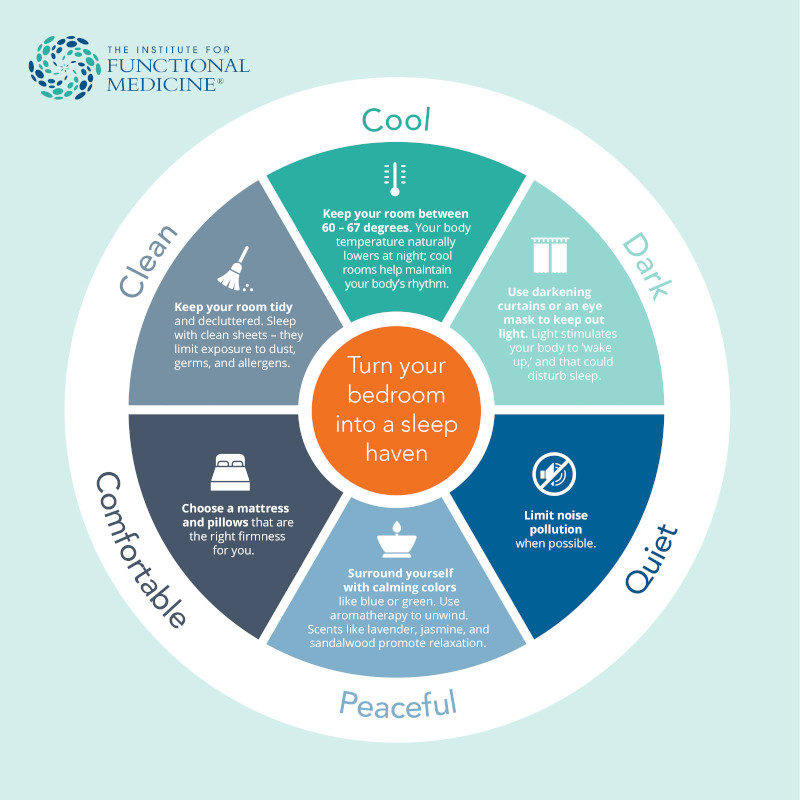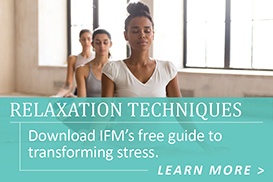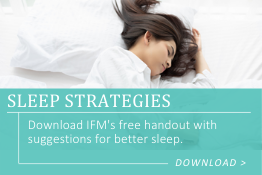In my previous posts we’ve covered the need for a functional medicine approach to improve the outcome of COVID-19 for our population. We’ve also laid out some solid suggests on physical measures to avoid acquiring the infection. And then we discussed the first, and unequivocally most important aspect of strengthening host defenses, which starts with using foods to balance and optimize immune system function. So if you haven’t had a chance to look over those posts, please use the links to do so now. My goal with providing this information is to create a solid foundation of information and sequentially build on top of that with succeeding recommendations until we have a hierarchical pyramid of successive strategies to help you win against this foe. But it’s so important to start with the basics first at the bottom of the pyramid and not skip those most essential strategies. So if you need to, jump back to those things now before reading the rest of this post, then come back here. Further posts from here will explore the last remaining steps to take. But counting this post and the preceding ones, you’ll be 80% of the way to where you want to be when it comes to preparing yourself and your loved ones.
So we’ll lay out our premise here, as we’ve done in the prior posts. At this time there is justifiable concern for infection with the SARS-CoV-2, the virus which causes the illness classified as COVID-19. As we’ve said, the virus is here. As a people, we can take steps to slow the spread for the population, and limit the spread from affected individuals to others, but there currently is no means to stop new cases of infection from arising. We have no proven therapies that work directly against the virus at this time. It is unlikely that we will have any modern pharmaceutical therapy available in the near term which will either prevent the infection, or limit the extent or severity of the infection. A vaccine is many months away at best. There are many hopeful statements being made about certain pharmaceutical agents, but it’s important to realize that none of those have been properly vetted in a gold-standard fashion with a double-blind, placebo-controlled, randomized clinical trial at this time. Meaning, the certainty that any of those therapies work ranges from speculation to collections of observations. We would never settle for that level of evidence before granting approval to any new drug in the modern era. Most of the therapies currently provisionally approved in the USA are restricted to a population of moderately to severely ill individuals in the hospital. Fortunately, there are options to fight this which are non-pharmaceutical in nature and available to everyone for little or no cost. That’s the thrust of this article. So let’s get started.
Immune system function must be the ultimate focus of the strategy we use to both reduce the chance of becoming symptomatically infected, as well as to potentially lower the severity of infection, and diminish the chances of long-term harm as a result of a severe infection. Fortunately, we have some tools to help us! Lifestyle factors have a large effect on the immune system. We must learn how to use those factors in the proper way in order to prevent the negative outcomes associated with infection. The biggest modifiable lifestyle factor is food. We’ve covered that in the prior post as mentioned above. Let’s get after the remaining ones here:
Stress Management
Why start here? Aside from poor food choices, stress is the one of the major drivers for chronic disease in our society. We know that both acute and chronic stress can result in dysregulated and suppressed immune function. Not an ideal situation to find ourselves in right now. Can we alleviate stress? No, not really. But what we can do is to modulate, or change our response to it. That may sound easy to say and hard to apply practically. Yes and no. There is no magic wand when it comes to reducing the effects of stress, or modulating our response to it. However, there are simple steps we may take that have a proven track record of success. Those steps may be some of the most important things to do in light of our current situation, but are also the most important things we can do in order to amplify our experience of happiness and joy in life. So they are very worth the added effort!
Let’s start with the why. In 1936 a researcher by the name of Hans Selye performed the seminal scientific experiments to document the results of adaptation to stress. Paradoxically, he stated that some degree of stress was actually healthy and beneficial for immunity. However, when stress became chronic, even at low levels, with no resolution or coping behaviors, it suppresses immunity. We now understand this biochemically and it’s very simple. Stress activates a pathway from the hypothalamus in the brain, through the pituitary, and then to the adrenal glands to produce cortisol. That pathway ultimately leading to cortisol production is intimately intertwined with the function of the immune system. Cortisol by it’s very nature is anti-inflammatory. When asthmatics have an attack we give glucocorticoids, which are synthetic forms of cortisol, in order to quell their symptoms by suppressing over-reaction of the immune system. So, you can see already, that too much cortisol, while it may be necessary in certain circumstances, can become detrimental to immune function if overproduced over the longterm. That overproduction is happening in people who are chronically affected by stress. And the result is a fundamental alteration of immune function which may increase susceptibility to respiratory diseases and increase their severity. Something we definitely need to avoid during COVID-19.
Six Strategies to Reduce Stress
Reducing stress can improve overall health, and specifically modulate and improve the function of the immune system. Here are a few tips on techniques to start employing in your life.
- Avoid Information Overload: Coronavirus news stories are everywhere we turn right now. Social media is exploding with information which is changing and contradictory and meant to be inflammatory and attention garnering. Just turn if off. Distance yourself from toxic social media by taking a deep breath and accepting that no one has all the answers and we can avoid unwanted stress and anxiety over this. Use the Screen Time tracker and limit yourself to just one 30 minute episode per day. Make that align with your circadian rhythm and avoid that exposure at night when you’re trying to wind down to go to sleep.
- Practice Gratitude: These times are full of uncertainty and worry and negative thoughts can predominate. Take a step back and practice gratitude in order to help your mind remember the positive elements of your life. Share that gratitude with others and it will have a ripple effect of positivity! Sit down and write a letter, a note, or an email to someone who has been a positive influence on your life. Keep a running tally of things you are grateful for in life on a daily basis.
- Try Meditating: For many thousands of years across many different cultures, meditation has provided an enormous positive impact on many different aspects of mental, spiritual and physical wellbeing. There are many free videos and apps for mindfulness meditation. The #1 and #2 apps currently are Headspace and Calm. Both of those companies have seen the impact of the coronavirus pandemic and have created special collections of of guided meditations to help you find balance. Headspace also announced they were offering a free year’s membership to all healthcare providers. The link I provided above will take you right there. You may be interested in a technology driven approach to meditation. There is one that I recommend and use personally. It is backed by strong research. The device monitors your EEG-brain waves in order to gently guide you to the desired goal. The device is called Muse the brain sensing headband.
- Aromatherapy: Find a fragrance you like. Lavender is one of the most researched and well understood of the essential oils. It contains two compounds, linalool and linalyl acetate, associated with lowering the stress response and helps with the initiation of sleep.
- Exposure to Nature: A groundbreaking study in Scientific Reports from 2019 found that spending about two hours per week in parks, woodlands, or beaches promotes physical and mental health and well-being. While we realize the necessity for social distancing out in public, we can still enjoy some of this while maintaining appropriate precautions. Getting sun exposure can help our bodies create vitamin D, which we’ll be exploring in upcoming posts as essential for immune health. Even breathing plant products in the air in forests was demonstrated to have beneficial effects on the portion of the immune system which is key in the defense against viruses. The type of immune cells studied are called “natural killer” cells and are specialized T-lymphocytes. Researchers from Japan, where the population are well-attuned to this phenomenon have a word for it “shinrin-yoku.” The results from their research are published here if you’re interested in finding out more.
- Exercise and Yoga: Right now yoga classes and exercise facilities are closed, but these are things you can easily do from the comfort and safety of your own home. There are numerous body-weight exercise routines available for individuals at all skill levels. Just search for them online. A personalized exercise program can be fundamental in calming the mind, and also immune-supportive. Combine exercise and yoga with outdoor exposure for a double win! If you need a gentle introduction to yoga, I suggest searching for Yoga with Adriene on YouTube. Yoga fosters many aspects of a meditative mind-body connection which have been shown to improve multiple aspects of immune function.
If you’d like to see more about strategies for transforming stress, follow this link.
Sleep
Sleep is also one of your body’s first line of defense against infections. However, during the time of public health concerns over the spread of COVID-19, anxiety amongst the populace has been raised on a global scale. Unfortunately anxiety is a leading cause of poor sleep. Sleep is known to play a pivotal role in supporting healthy immune function. Consistent getting good sleep as a matter of routine will prepare your body for fighting off illness, as well as support your overall health and well-being.
Sleep disturbance may be one of the earliest signs of infection. For that reason, we recommend the Ōura Ring for all of our patients and we use one ourselves to track sleep. Ōura Ring is not just a sleep tracker. It’s a predictive tool. I’ve noticed that my body temperature, which is recorded every night, starts to track upwards a day or so before I notice any symptoms of illness. Temperature is an early sign of immune system activation, but you need to have an accurate track record to establish your own individual basal body temperature. Then understand that temperature will always vary up and down by certain margins within a range day to day. Knowing that range for you as an individual can provide vital insight when you start to fluctuate outside of that range, which is typically about 1.8 degrees F. Ōura will pick up on deviations outside of your normal range and alert you. In addition, it is also tracking other vital parameters such as respiratory rate, heart rate and heart rate variability. It tracks all of those measures while you sleep. All of them are subtle indicators alone, but the power of Ōura is compiling all of that data into an insightful forecast provided to you every morning upon awakening.
Lack of sleep can slow down proper immune response and allow illness to progress further. Obviously, if you do become ill, it is well-advised to get plant of rest. The benefits of rest are both preventive and restorative. The optimal amount of sleep varies per individual, but consistently fall within a range between seven and nine hours. So one of the simplest ways to improve immune function is sleep. Yet almost a third of Americans do not get enough sleep every night.
Let’s explore some tips to improve sleep hygiene which support the body’s circadian rhythm and reduce unwanted intrusions affecting a good night’s slumber. These are lifestyle adaptations which we can make both during the daytime to facilitate sleep, as well as in the evening and nighttime.
Tips for Improving Sleep
- Maintain a Consistent Sleep Schedule: Going to bed and waking up times should be consistent everyday and not vary on weekdays and weekends. It’s probably better to make up lost sleep if that’s what you have to do, but try and figure out how to get the consistently right amount of sleep every night.
- Exposure to More Daylight During the Day and Limiting Artificial Light at Night: Daylight is the most powerful signal to align the circadian rhythm. It reinforces the the ‘awake’ phase of the body’s sleep-wake cycle. Spending more time outside during the day can make it easier to sleep at night. If you do have to remain indoors throughout the day, try to expose yourself to daylight through and open window. If you can, get outdoors for breaks and get sunlight exposure. During the evening, the blue light spectrum emitted from back-lit screens on cell phones, computer monitors or tablets fools the brain into thinking it’s still daylight. This promotes extension of wakefulness beyond the usual time period and makes it harder to fall asleep. The easiest remedy is to limit your use of electronics in the evening. Dim the lights in your house as the sun goes down to mimic sunset conditions. Fancier workarounds are to use the Night Shift mode on phones and computer devices. This shifts the screen spectrum towards the red end of the visible light and away from blue end. It’s not a panacea, but it can help. The other thing to consider are blue blocking glasses. These typically have amber or red lenses. They cancel out the blue light spectrum. I am definitely a fan of wearing them.
- Stay Active: Exercising during the day helps to promote alertness and better sleep at night. Strenuous activity at night, on the other hand, can make it harder to fall asleep. Cortisol is elevated by exercise. Not in a bad way, but it cortisol is the enemy of sleep because it opposes melatonin, which is the sleep promoting hormone. You should give yourself several hours between finishing your last workout and preparing to wind down for bed.
- Avoid Caffeine, Heavy Meals, and Alcohol Before Bed: Eating before bed can prevent a good night’s sleep. Sleep is a multifaceted, highly orchestrated process that involves not only your brain, but the entire body. During sleep, there are essential activities which occur in the liver and GI tract which are necessary to proper health. However, those activities cannot take place if food is still digesting. We instruct all of our patients to allow at least three hours between consuming their last food and preparing for bed in order for completion of that digestive activity. We’ve all experience the sensation of laying in bed awake listening to our stomach roll after a late heavy meal. I’m just going to say, as in my prior article about alcohol. It’s just best to avoid it entirely during this phase of the pandemic. Certainly, if you do imbibe, do so in great moderation, and allow plenty of time for the metabolism of that alcohol to occur prior to the onset of sleep. Don’t ever fall victim to the fallacy that alcohol will help you sleep! It destroys sleep, particularly the deep sleep phase which is responsible for many of the restorative aspects of sleep in general. Caffeine is pretty obvious, too. Caffeine promotes alertness and opposes the very chemistry of sleep at its most fundamental level. I recommend no consumption of caffeine beyond about noon for a normal bedtime around 10pm. If you know your genetics, something we routinely evaluate for our patients, then we can further tailor those recommendations depending on whether you are a fast or a slow metabolizer.
- Take Naps: Napping can actually boost immunity and promote alertness, cognitive performance and productivity. Famous nappers over time were very driven people like Thomas Edison and Albert Einstein. The best time for a nap is in the mid-afternoon. Aim for about 20 to 30 minutes. Realize that a nap during the day will relieve some sleep pressure, which could make it harder to fall asleep at night. That’s why don’t recommend longer naps. But if you need to catch up on sleep, it’s probably better to do it than remain sleep deprived.
- Take Time to Unwind: Engage in a mindfulness practice in the evening to wind down and relax. Do something instead of staring at a screen. Consider light stretching or very gentle yoga. A warm bath may also help using some Epsom salts will provide the added calming effects of magnesium. Also the temperature transition between a warm bath and subsequent period of cooling off is naturally sleep inducing.
- Improve Sleep Environment: Your bedroom should be your sanctuary away from the intrusions of life. It should be quiet. It should be as dark as possible. And there should be no or very few disturbances in the form of outside noises. Noises, even if they don’t awaken you do awaken parts of the brain that must decide if they are something that should awaken you. That process alone disturbs the architecture of sleep and interrupts the rhythmic processes involved in deep sleep in particular.
If you’d like to see more information about suggestions for better sleep, click this link to find out more.



